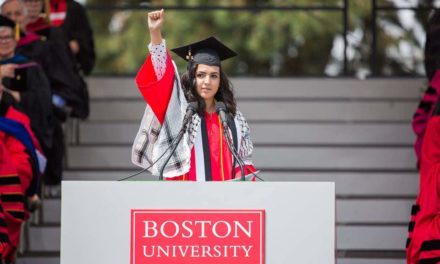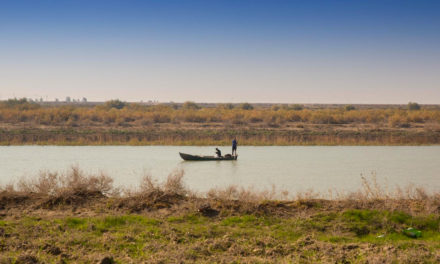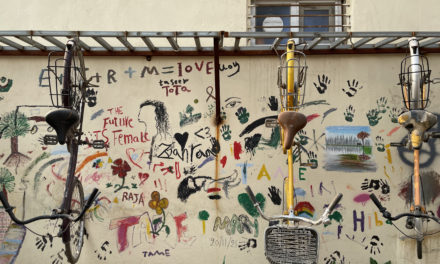Given that no democracy whether established or nascent is perfect, reform becomes a vital requirement for any democratic system. When it comes to Iraq however, much needs to be done considering that the last 15 years were not ideal for democracy to naturally mature.
One very essential area that requires development is Iraq’s political parties. These are the institutions where everything begins and one of the important indicators of how advanced a given democracy is. One important issue that makes this a challenging endeavour is that there is an overall negative perception towards political parties amongst the Iraqi people. This is warranted.
Before 2003, and especially during the Ba’ath era, political parties had been tools to control society instead of leading it to progression. The word ‘party’ in Iraq had been synonymous with oppression, cronyism, and elitism. Most of the crimes against the Iraqi people were committed through the one-party apparatus which provided the leader with the capabilities of spying and rooting out any form of opposition present. The Ba’ath party was a tool that enabled Saddam to control society. Through a policy called the ‘Ba’athification of society’ Saddam ensured that no other political direction or ideology was acceptable in Iraq, except that of the Ba’ath party.
Sadly, the misconception of the word ‘party’ based on the practices of the Ba’ath continued to live on due to the misconduct of many political parties that returned to Iraq or were formed after 2003. It is certainly not fair to compare these parties with the Ba’ath party and its actions, but the conduct of the political parties in the New Iraq have not been exemplary. In the Kurdistan Region of Iraq, the ‘ruling parties’ duplicate in many instances one-party system practices, only on a smaller scale. They represent sophisticated networks that facilitate corruption and nepotism. In the rest of Iraq, the conducts of many parties embody what nepotism, division, and sectarianism stand for.
The cosmetic practice of calling political entities ‘movements’, ‘councils,’ or ‘currents’ as an attempt to avoid the negative connotations of the word ‘party’ has been rendered useless a long time ago. To Iraqis, they are the same thing, even if they do not have the same structure or follow the same processes of governing themselves, as long as their practices are the same. Having said that, the importance of political parties in a democratic system remains. In Iraq, we might not need more of them, but we certainly need improved ones.
It is challenging to determine exactly what would make a good party. However, a number of criteria that could be good indicators that we are moving in the right direction are as follows.
First, parties need to produce effective leaders. A good party is a place where leadership development takes place. There might be many opinions on what makes a good leader. However, I think a good a place to start is with developing leaders who serve the people, care about the future, and engage in transformation.
Second, parties need to understand society better. They are institutions where the public opinion is supposed to be studied thoroughly. Too often we find Iraq’s political parties focusing on issues that do not necessarily represent what the Iraqi people care about.
Third, parties need to craft visions. The constant politicking that many parties engage in today will not build a society with a clear direction. For instance, part of the confusion that is now prevalent in Iraq’s political scene is that almost all of Iraq’s parties do not have a clear sense of the future and form coalitions based on sheer interests, sometimes doing the exact opposite of their campaign platforms.
Fourth, parties need to produce policy. This is supposed to be the place where actual policy is born and which the voters decide which party deserves their confidence. Very few parties make it clear to their constituents where they stand on specific issues. Populism is not a sustainable strategy for political parties to depend on in the long-term.
Fifth, parties need to be transparent in their finances. Especially in Iraq, the issue of financing has become an important indicator of whether a party represents the interest of the Iraqi people or some foreign agenda. Financial transparency is a critical precondition for Iraqis to (re)gain their trust in the party system.
Last but not least, parties need to practice democracy internally. While Iraq’s party law, for instance, imposes the choice of party leadership based on democratic measures, we still see in practice authoritarian figures leading most of Iraq’s parties. If a political party cannot apply democratic principles inside its institutions, how is it to be expected to contribute to the democratic transformation of society?
Transforming Iraq’s political parties is very challenging. Apart from the unfortunate legacy of the concept of ‘party’ in Iraq, what we are talking about it not changing one organization but a whole category of them. While the State can enforce effective legislations related to parties and the non-governmental sector can assist in the transformation process, it is crucial that the political parties themselves spearhead the effort of changing themselves.

Muhammad Al-Waeli
Muhammad Al-Waeli is an Iraqi commentator on political and social issues. He is currently doing a PhD in Human Resource Management and is interested in politics, media, and development.










